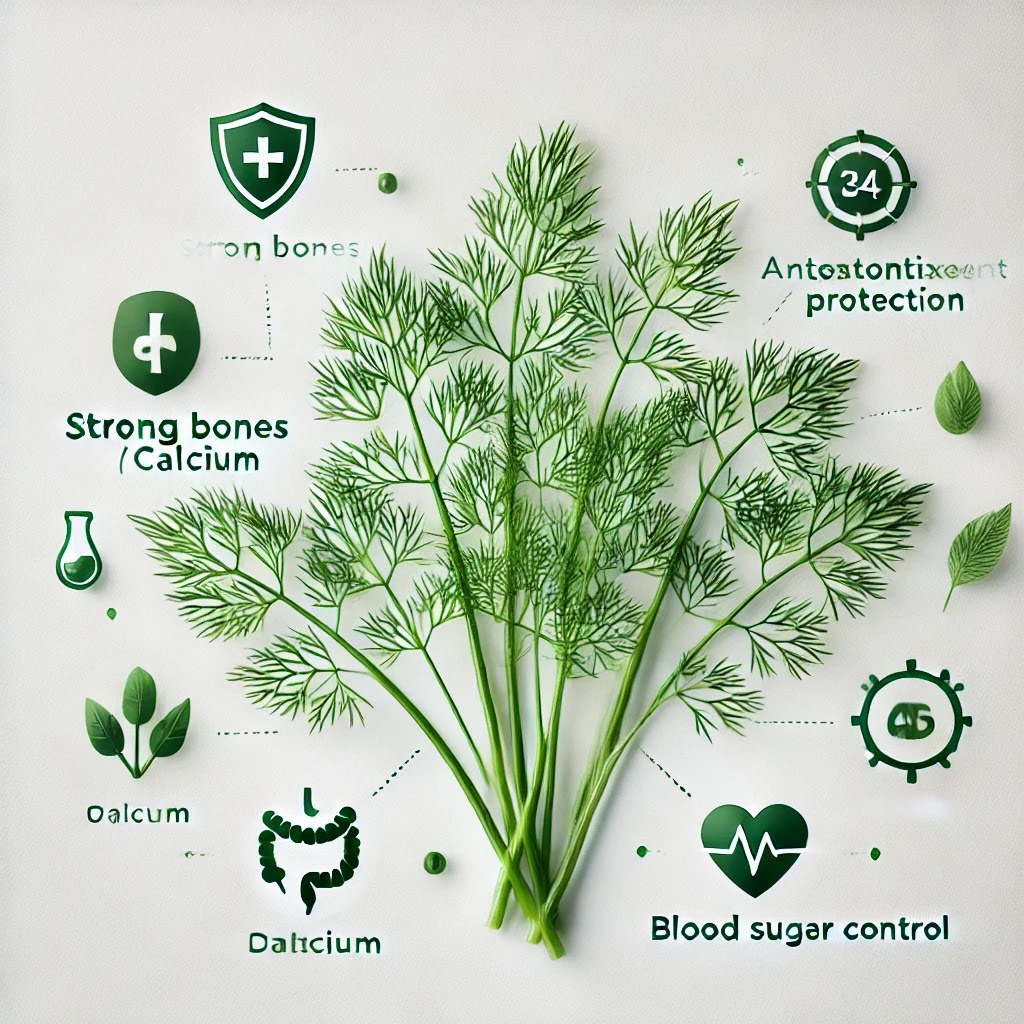Introduction
Dill, a fragrant herb commonly used in culinary practices around the world, offers a variety of health benefits. Beyond its unique flavor, dill is packed with essential nutrients and bioactive compounds that contribute to overall well-being. In this article, we will explore the key health benefits of dill, ranging from antioxidant support to its positive impact on bone health.
Rich in Antioxidants
Dill is a potent source of antioxidants, including flavonoids, terpenoids, and tannins. These compounds help to neutralize free radicals in the body, reducing oxidative stress and lowering the risk of chronic diseases such as heart disease and certain types of cancer. Antioxidants also play a crucial role in promoting skin health by preventing premature aging and maintaining the integrity of cells.
Supports Digestive Health
Dill has traditionally been used as a remedy for digestive issues. The essential oils found in dill, particularly carvone and limonene, can help stimulate digestive enzymes and bile production, making it easier for the body to break down and absorb food. This makes dill an excellent natural remedy for indigestion, bloating, and even mild cramping.
Anti-inflammatory Properties
The bioactive compounds in dill, such as quercetin and kaempferol, exhibit anti-inflammatory effects. Chronic inflammation is linked to numerous health problems, including arthritis, heart disease, and diabetes. By incorporating dill into your diet, you can help modulate inflammation in the body, reducing the likelihood of these conditions developing over time.
Bone Health Support
Dill is rich in calcium, magnesium, and phosphorus—three minerals that are vital for maintaining strong bones. Calcium and phosphorus play a key role in bone density, while magnesium helps with the proper absorption of these minerals. Regular consumption of dill may help in preventing conditions like osteoporosis, particularly in postmenopausal women who are more susceptible to bone density loss.
Regulates Blood Sugar Levels
Preliminary studies suggest that dill may help regulate blood sugar levels. Certain compounds in dill have been shown to mimic the effects of insulin, improving glucose uptake in cells. This could make dill a helpful addition to the diets of individuals at risk of developing type 2 diabetes or those looking to manage their blood sugar more effectively.
Antimicrobial Effects
Dill contains essential oils with antimicrobial properties that can help fight off harmful bacteria and fungi. These properties make dill a natural option for improving oral health by reducing bad breath and protecting against infections. Additionally, dill's antimicrobial effects may support the immune system by preventing minor infections.
Conclusion
Dill is far more than just a flavorful herb used in pickling and cooking—it offers a wide range of health benefits. From supporting digestive health to enhancing bone strength and providing antioxidants, dill is an excellent addition to any healthy diet. As with any herbal remedy, it’s important to consume dill in moderation and consult with a healthcare provider if you have any existing medical conditions or are on medication.








0 Comments